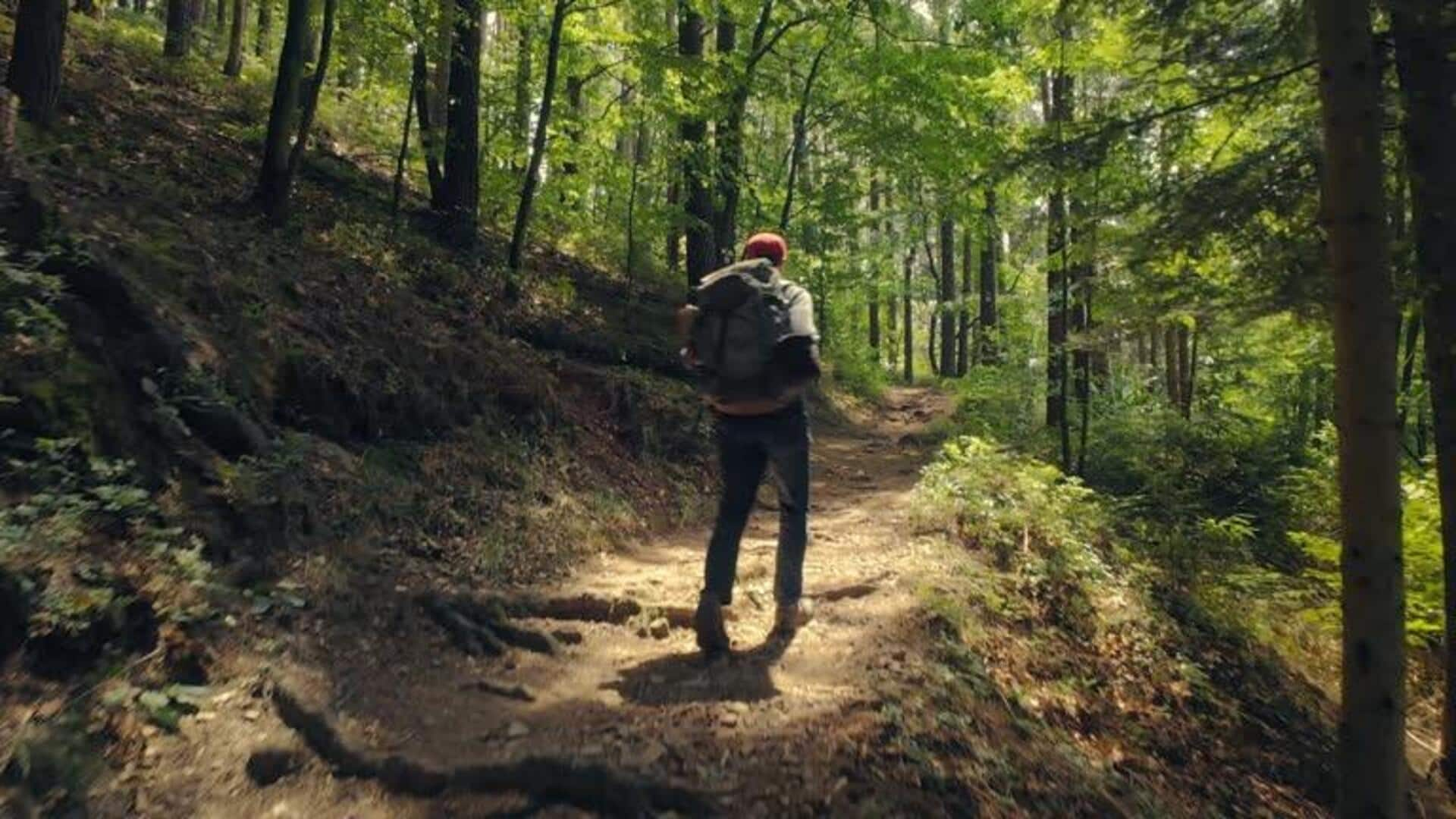
Bushwalking 101: Tips, tricks, and must-knows
What's the story
Bushwalking in Africa is unlike any other. The continent's diverse biomes, ranging from savannas to rainforests, make for an awe-inspiring experience. However, every biome comes with its own challenges and rewards, which is why bushwalkers have to be well-prepared. Knowing the terrain, climate, and wildlife can make your experience all the more enjoyable and keep you safe. Here are some practical tips for you!
Terrain insight
Understanding the terrain
African biomes differ significantly in terrain, from flat grasslands to rocky mountains. Get acquainted with the particular biome you intend to visit. For example, savannas are generally flat, dotted with trees while rainforests boast of dense vegetation and uneven ground. This knowledge helps in choosing the right footwear and gear.
Climate preparation
Preparing for climate variations
Africa's climate varies widely, from arid deserts to humid rainforests. Hence, it is important to check forecasts before your trip and pick your wardrobe accordingly. In hotter regions, choose light clothing and make sure to carry ample water to remain hydrated. In cooler/rainy areas, on the other hand, it is advisable to pack layers and waterproof gear to remain comfortable and dry during bushwalking.
Wildlife safety
Wildlife awareness
Spotting wildlife is a major drawcard of bushwalking in Africa but do exercise caution. Familiarize yourself with the animals that are native to the area you're visiting. Maintain a safe distance from all wildlife and never try to feed them. Carry a pair of binoculars for viewing safely without disrupting their natural behavior.
Navigation skills
Navigation tools & techniques
Reliable navigation tools are a must when exploring unknown terrains. Carry a map and compass as basic tools, GPS devices can also come in handy but shouldn't replace traditional tools due to possible signal issues in remote areas. Practice using these tools before your trip for confidence on your journey.
Cultural respect
Respecting local cultures & ecosystems
Learning about the customs and traditions of communities close to your bushwalking destination is a part of respecting local cultures. Respectfully engaging with locals (if you see them on your walk) not only enhances your experience but also creates goodwill between visitors and residents. This way, you have a harmonious interaction, where you exchange knowledge and understanding, making the bushwalking adventure better for all.